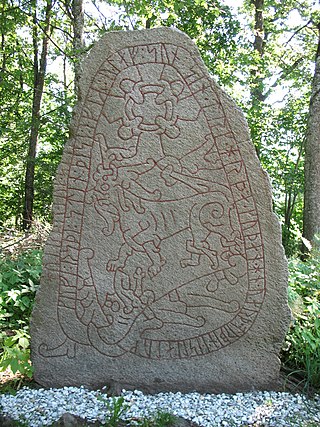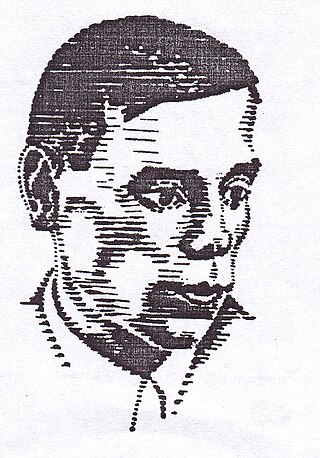Aistis is a Lithuanian given name and ethnonymic surname derived from the given name/nickname literally meaning "person from the Aesti tribe". [1] Notable people with the name include:

Old Prussians, Baltic Prussians or simply Prussians were a Baltic people that inhabited the region of Prussia, on the southeastern shore of the Baltic Sea between the Vistula Lagoon to the west and the Curonian Lagoon to the east. As Balts, they spoke an Indo-European language of the Baltic branch now known as Old Prussian and worshipped pre-Christian deities. Their ethnonym was later adopted by predominantly Low German-speaking inhabitants of the region.

The Aesti were an ancient people first described by the Roman historian Tacitus in his treatise Germania. According to Tacitus, the territory of Aesti was located somewhere east of the Suiones (Swedes).
Linas is a Lithuanian male given name. It is the Lithuanian form of the name Linus, which derives from the Greek for "flax". The female equivalent is Lina. Linas may refer to:
Daumantas is a given name and a surname.
Aistė is a Lithuanian feminine given name.

The name of Estonia has a long and complex history. It has been connected to Aesti, first mentioned by Tacitus around AD 98. The name's modern geographical meaning comes from Eistland, Estia and Hestia in the medieval Scandinavian sources. Estonians adopted it as an endonym only in the mid-19th century.
Vilkas is a Lithuanian language family name. The word means "wolf" in Lithuanian.
Steponavičius is a Lithuanian language family name. It corresponds to East-Slavic Stepanovich and South Slavic Stepanović. The surname is derived from the name Stepan.
Adamenko is a Ukrainian language last name derived from the given name Adam. The Russian-language spelling is the same, Belarusian: Adamenka.
Povilionis is a Lithuanian surname. Notable people with the surname include:
Balys is a Lithuanian masculine given name. People bearing the name Balys include:
Eigirdas, married female form Eigirdaitė, maiden name form Eigirdienė, is a Lithuanian name.
Kalvaitis is a Lithuanian-language surname derived from the word kalvis, "blacksmith". It was Polonized as Kailoweit, Kallwejt, Kalwajt, Kalwajtys, Kałwajtys, Kalweit, Kallweit, Kalwejt. Notable people with this surname include:
Jurgita is a Lithuanian feminine given name. It is derived from the masculine given name Jurgis. People bearing the name Jurgita include:
Petrusevičius is the Lithuanian-language form of the Polish surname Petrusewicz. Feminine forms: Petruševičienė, Petrusevičiūtė
Petravičius (masculine), Petravičienė, Petravičiūtė is a Lithuanian-language surname. Notable people with this surname include:
Adamkus is a Lithuanian surname derived from a nickname, which is a diminutive of the given name Adam. Notable people with this surname include:
Povilaitis is a Lithuanian-language surname derived from the given name Povilas, or Paul. Notable people with the surname include:
Poviliūnas is a Lithuanian surname. Notable people with the surname include:

Jonas Aleksandravičius, better known as Jonas Aistis or Jonas Kuosa-Aleksandravičius, was a Lithuanian writer, poet, and essayist. Aistis was one of the most prominent neoromantic poets of Lithuania.